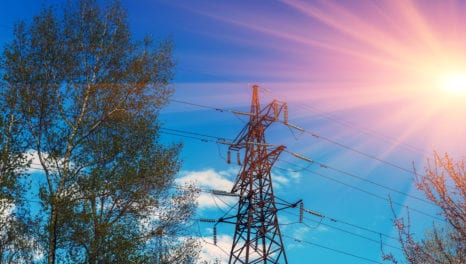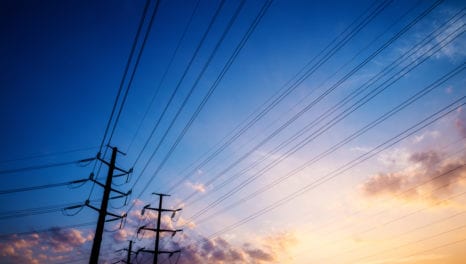Primary legislation may be required to end storage double-charging
BEIS official says changes should be "straightforward to deliver" despite parliament's timetable being taken up by Brexit
22nd March 2017 by Networks

Ending the double-counting of storage for the purposes of network charging “might require primary legislation”, a senior BEIS official has warned.
Getting legislation through parliament is “difficult at the moment” given the amount of parliamentary time being swallowed up by Brexit. However, proposals to put storage on an equal footing with other flexible assets are “top priority” and should be “straightforward to deliver”.
“Brexit’s taking up a lot of the parliamentary timetable in the next few sessions but we said in the call for evidence that we believe this is a top priority for primary legislation and should be straightforward to deliver.”
Speaking at the Future Networks Conference in Birmingham yesterday, Beth Chaudhary, head of smart energy policy at the Department for Business, Energy and Industrial Strategy (BEIS), described the current situation as an “accident”, saying it arose from an “out of date regulatory system” which wasn’t designed with storage in mind.
At the moment, storage assets are classified as both generation and demand when determining transmission charges, meaning they are first charged for storing power when there is a surplus of generation and then for returning it to the grid when demand outstrips supply. They are similarly treated as both importers and exporters when determining balancing charges.
BEIS is currently “taking stock” of the submissions to its call for evidence on a smart, flexible energy system and will publish its response “within months”. Chaudhary said there was “a lot of consensus” among respondents that there is a “fairly straightforward solution” to the problem of double-charging.
Ofgem recently launched a consultation on plans to classify storage as solely as generation when calculating residual transmission charges, and as either an importer or an exporter when calculating balancing charges, but not both. The regulator said imports or exports could be tallied on a net or gross basis for the purposes of balancing charging, although the latter option would “align the treatment of storage more closely with generation”.
Chaudhary said enacting these changes “might require primary legislation, which for the government is difficult at the moment because of Brexit.
“Brexit’s taking up a lot of the parliamentary timetable in the next few sessions but we said in the call for evidence that we believe this is a top priority for primary legislation and should be straightforward to deliver.”
Ofgem’s proposals for the classification for storage were revealed alongside plans to hold a significant code review (SCR) to examine concerns that some consumers are not making a “fair contribution” to network costs.
The regulator said the reforms to network charging for storage should be “taken forward by industry” outside of the SCR as there “considerable industry agreement” on what needs to be done. However, it will consider “widening the scope” of the SCR to include storage charges if that fails to happen.
Comments
Login on register to comment
Related content

Power
The future for vegetation management
Why networks should focus on data not trees to overcome the costly challenges involved in vegetation management

Power
An unprecedented opportunity for change
Why short interruptions will matter in RIIO-ED2 and how to address them.

Power
Time for less talk and more action on decarbonisation
Core "oven-ready" solutions to decarbonising heat and transport exist today and should be implemented without delay, says WPD's future power networks expert.
Related supplier content

Power
Load patterns and lockdown: how Covid-19 is impacting electricity networks
Insights into dynamics on the low voltage network as the outbreak unfolds

Heat
How E.ON. is helping the City of London become a zero emissions city
Discover Citigen. Deep in the heart of our bustling capital

Power
The Innovation Factor: Managing the transition to smart communication technologies in the electricity distribution sector white paper
The transition from legacy communications systems to new technologies can seem daunting for organisations in the electricity sector. But with market dynamics changing rapidly